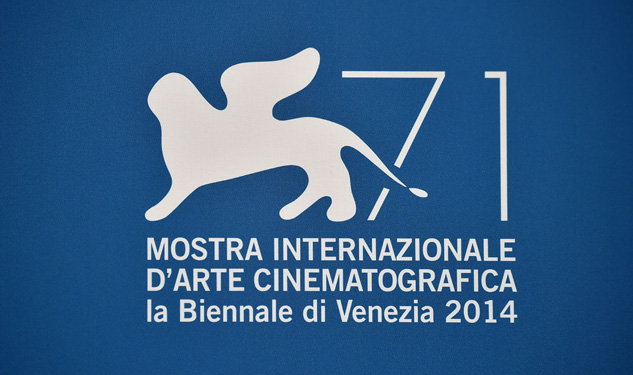
- Industry
Wars, Old Men And Very Few Laughs
The 71st Venice Film Festival came to a close Saturday night with lions and coppa volpis going to a wide array of winners. A recap of the world’s oldest festival.
Depressing is not a word usually applied to Venice, an easy-going festival with perfect access, great surroundings and delicious food. But as sweet as the dolci outside, what played inside the screening theaters was for the most part bleak and sad. Venice started off with the dark comedy Birdman but descended into real darkness only a day later.
Fatih Akin presented The Cut a film on the Armenian genocide, Amos Gitai brought Tsili, where the scenes of fighting soldiers dominate the background through almost the entire film even though you hardly ever see them. Gitai fared better with his segment in the directing ensemble piece Words With Gods (more on that later). Joshua Oppenheimer’s documentary The Look of Silence, a sort of follow up to his Act of Killing, was no laughing matter, either. Ethan Hawke excelled in Andrew Niccol’s Good Kill as a drone pilot looking for redemption, but the film, after starting off well, disappointed with its ending. And then there was Shinya Tsukamoto’s Nobi: Fires on the Plain with starving soldiers driven to madness. Viggo Mortensen played a teacher drawn into Algeria’s battle for independence in Far From Men.
One needed a caffè corretto, the strong espresso with a shot of grappa, to get through more than two of these kinds of films per day. The war themes are no surprise said festival director Alberto Barbera – the festival only resembles the state of the world: “We are living in dangerous times.”
The alternative to the atrocities and torture of war seemed to be the problems and sensitivities of (sometimes dirty) old men: Al Pacino as a lovelorn locksmith in Manglehorn, Al Pacino as a washed up actor – where Michael Keaton lit up the screen in Birdman in a similar role, Pacino merely flickered in Barry Levinson’s The Humbling. In Pasolini Abel Ferrara did what he has done better before: delve into the depraved depths of the male soul with his biopic on the Italian poet and filmmaker. And then there was enfant terrible Lars von Trier with part 2 of Nymphomaniac. Europeans were hardly shocked, not because we had seen part 1 but because of all his previous excursions into sexual issues (and because we are not that easily shocked by sex in the first place).
Lots of female critics wondered aloud whether the emphasis on male themes and male problems simply had to do with a heavily male dominated festival. As Molly Hassell, the producer of Ami Canaan Mann’s love story Jackie & Ryan pointed out : “I am only one of two female producers in this festival.” And Ami Mann was only one of a handful of female directors, Veronika Franz and Mira Nair (who only made a short, though) among them. Where is Jane Campion when you need her? Campion made a big stink about the lack of women in film as president of the jury in Cannes, but Cannes in comparison had more girl power than Venice.
The question whether or not the sensibilities on screen would have been different with more female voices is tough to answer. More than all the wars fought in the cinemas, it was the economic issues that were a sign of our times. Ramin Bahrani excited viewers with 99 Homes, his scathing critique of the Florida housing crisis. American journalists and all those of us living in the U.S. reacted with anger – not towards the film but towards the misguided politics that caused the crisis in the first place.
There were a few laughs: Peter Bogdanovich’s She’s Funny That Way delighted the audience, as did Jackie & Ryan with Katherine Heigl in her most nuanced performance. 3 Cœurs, a love triangle with Catherine Deneuve, Chiara Mastroianni and Charlotte Gainsbourg disappointed with its conservative direction. And the Golden Lion-winner was the absurdist swedish film A Pidgeon Sat on a Branch Reflecting On Existence (yes, that title !) had garnered lots of chuckles despite its partially bleak tone but laughing out loud was not on the menu in Venice, even though some Italians were howling at Belluscone: Una Storia Siciliana, a documentary on the connection between former prime minister Silvio Berlusconi and the mafia. It was certainly funnier than the other Berlusconi doc La Trattativa that overwhelmed non-Italian audiences with too much information.
The films that stuck and caused thoughtful discussions even days later? Certainly 99 Homes and for me Guillermo Arriaga’s Words With Gods where he recruited 9 directors to film shorts on different religions, among them Gitai, Nair, Alex de la Iglesia and Hector Babenco.
Elisabeth Sereda

